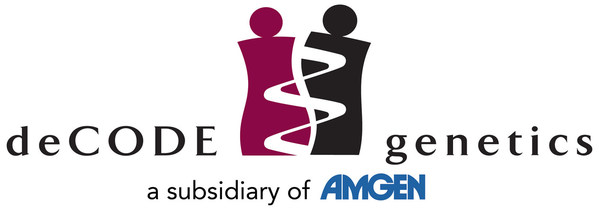Dietary cholesterol and phytosterols contribute directly to heart disease-PR Newswire APAC
- Written by PR Newswire Asia - Daily Bulletin Au RSS

|
Genetic variability in cholesterol and phytosterol absorption affects cardiovascular disease risk
REYKJAVIK, Iceland, Aug. 7, 2020 /PRNewswire/ -- Scientists at deCODE genetics, a subsidiary of Amgen, and their collaborators from the Icelandic healthcare system, University of Iceland, the Copenhagen University Biobank and the Danish Blood Donor Study, recently published a study in European Heart Journal, with new findings that point to harmful effects of dietary cholesterol and phytosterols.
It is well established that the "bad" cholesterol (also called non-HDL cholesterol and LDL cholesterol) directly affects the development of cardiovascular disease. Individuals who have high blood levels of bad cholesterol, or are at high risk of heart disease for other reasons, are generally advised to lower their cholesterol levels through lifestyle changes, and sometimes receive treatment with cholesterol-lowering drugs such as statins.
Blood levels of cholesterol are affected by both genetics and the environment, diet in particular, with the consumption of saturated fats, found primarily in red meat and high-fat dairy foods, increasing blood cholesterol. However, the importance of dietary cholesterol in the regulation of cholesterol levels in the blood and the risk of heart disease has been the subject of controversy for decades. Most foods that are rich in cholesterol are also high in saturated fats with some exceptions, including eggs and shellfish.
Phytosterols are cholesterol-like molecules found in small amount in all plant foods, including fruits, vegetables, nuts and legumes. Food enriched with high amounts of phytosterols, mainly margarine and dairy products, is commonly recommended as part of heart-healthy diet as it may decrease the absorption of dietary cholesterol.
The transporter proteins NPC1L1 and ABCG5/8 control the absorption of dietary cholesterol and phytosterols. NPC1L1 transports sterols from the intestinal lumen into enterocytes where ABCG5/8 excretes less than half of the cholesterol but most of the phytosterols back into the intestinal lumen. Thus, we generally absorb about 50-60% of the intestinal dietary cholesterol but only 5% of dietary phytosterols.
The authors studied the effects of sequence variants that modulate the function of the ABCG5/8 transporter on blood levels of cholesterol and phytosterols and the risk of coronary artery disease in large sample sets from Iceland, Denmark and the UK Biobank. The effects of the sequence variants were measured in up to 147 thousand patients with coronary artery disease and 922 thousand individuals without disease.
The study showed that individuals who harbor sequence variants that decrease the function of ABCG5/8 transporter have increased blood levels of both cholesterol and phytosterols and increased risk of heart disease. These results confirm that dietary cholesterol affects blood levels of cholesterol and risk of heart attacks. The results also demonstrate that people absorb variable amounts of the cholesterol they consume.
The study also showed that the effect of the ABCG5/8 variants, influencing both levels of cholesterol and phytosterol, on risk of heart disease, was greater than of other cholesterol variants that do not affect phytosterol levels. These results support the notion that phytosterols may contribute directly to atherogenesis, raising questions about the safety of supplementing food with phytosterols.
In the accompanying Editorial, Oliver Weingärtner states that "The study by Helgadottir et al. is not only the best study so far to support the hypothesis that variations at the ABCG5/ABCG8 locus is mechanistically involved in atherosclerotic heart disease, but it also lends a strong impetus to study the role of xenosterols in this process too."
Based in Reykjavik, Iceland, deCODE is a global leader in analyzing and understanding the human genome. Using its unique expertise in human genetics combined with growing expertise in transcriptomics and population proteomics and vast amount of phenotypic data, deCODE has discovered risk factors for dozens of common diseases and provided key insights into their pathogenesis. The purpose of understanding the genetics of disease is to use that information to create new means of diagnosing, treating and preventing disease. deCODE is a wholly-owned subsidiary of Amgen (NASDAQ: AMGN).
Video - https://www.youtube.com/watch?v=jS4VscvgMsM Logo - https://mma.prnasia.com/media2/974116/deCODE_genetics_Logo.jpg?p=medium600
Contact:Thora Kristin Asgeirsdottir PR and Communications deCODE genetics +354 570 1909 +354 894 1909
Authors: PR Newswire Asia - Daily Bulletin Au RSS
Read more https://www.prnasia.com/story/archive/3069211_AE69211_0




